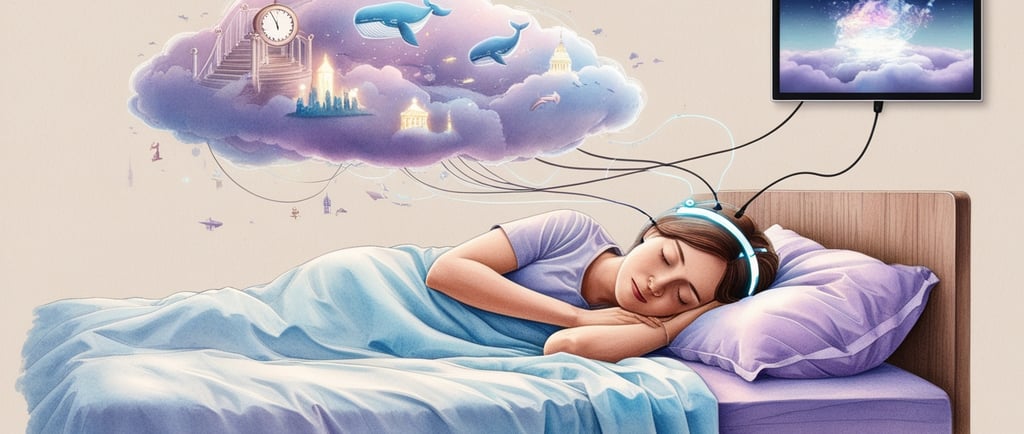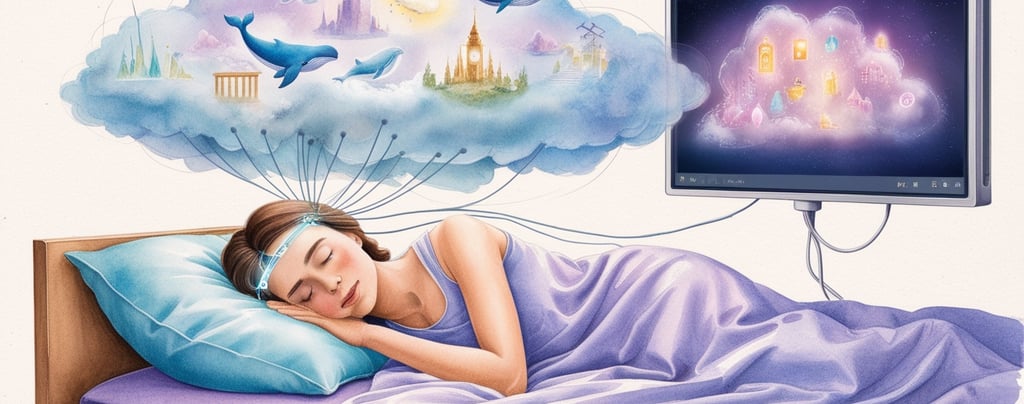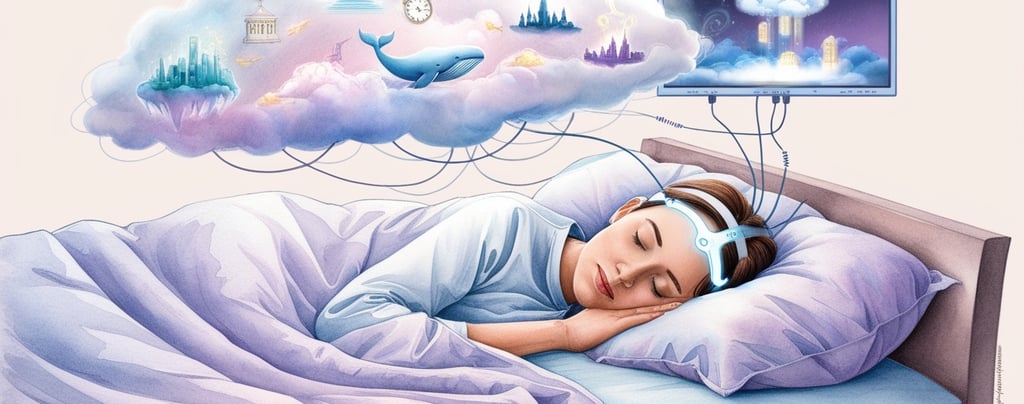Can We Record Dreams? Exploring Dream Recording Technology & Its Future
Could we record dreams and replay them like movies? Discover the science behind dream recording technology, its potential benefits, risks, and what it could mean for the future of our dream experiences.
Black Heart
4/8/20253 min read


What If Dreams Could Be Recorded and Played Back?
Introduction
I don’t know about you, but sometimes I wake up from a dream thinking, “I wish I could watch that again.” Dreams are weird, wild, and sometimes more vivid than reality itself. But what if we could actually record our dreams and play them back like a movie?
It sounds futuristic, but scientists are already experimenting with brain scans and AI tools that can recreate images people see in their minds. So maybe recording dreams isn’t that far-fetched after all.
What Does It Mean to Record a Dream?
When you dream, your brain is firing like a movie projector, flashing images, emotions, and memories stitched together. Recording a dream would mean capturing that brain activity and translating it into something watchable, like a video.
Neuroscientists already use fMRI scans and AI models to guess what someone is looking at based on brain activity. Imagine extending that to dreams, decoding your inner world into pictures and sounds.
How Could Dreams Be Recorded?
I guess it would work something like this:
Sensors scan your brain while you sleep.
AI decodes patterns into images and sounds.
The output gets stitched into a playback video.
It wouldn’t be perfect at first, maybe blurry, maybe surreal, but over time, technology could sharpen it until it looks just like what you dreamed.


Why Would We Want This?
Honestly, I think the reasons are endless.
Entertainment: Imagine replaying your dream like Netflix, or even sharing it with friends.
Creativity: Writers, artists, and musicians could mine their dreams for inspiration.
Therapy: Psychologists could study recorded dreams to better understand trauma, fears, or hidden desires.
Science: Researchers could explore how the brain builds reality when we’re asleep.
But… Should We Do It?
This is where it gets tricky. Sure, recording dreams sounds fun, but do we really want every subconscious thought saved on video?
What if you dream about something embarrassing?
What if someone else gets access to your recordings?
Would we lose the mystery of dreaming if we could replay it like a TikTok?
I guess the ability to record dreams comes with massive privacy and ethical issues.
Pros of Recording Dreams
Relive Adventures: Rewatch dreams like your own private movies.
Therapy & Healing: Helps process nightmares, trauma, or hidden fears.
Boost Creativity: Capture dream ideas before they fade.
Scientific Breakthroughs: Unlock mysteries of the brain.
Cons of Recording Dreams
Privacy Risks: Dreams reveal your deepest thoughts.
Embarrassment: Not every dream is worth watching.
Over-Reliance: People might escape reality by binging on dreams.
Nightmare Fuel: Who wants to relive a nightmare in HD?


What Would It Feel Like?
I think this is the wildest part. Imagine waking up, making coffee, and then sitting down to watch your own mind. Some dreams would look like surreal art films. Others might be messy montages of random images.
And then there’s the emotional side: reliving a dream about a loved one who passed away. That could be both comforting and heartbreaking.
Could Dreams Ever Be Shared?
This takes it even further: what if you could send your dream to someone else? Imagine couples sharing dreams, or even entire communities watching the dreamworld of others.
But again, it raises questions: do we want others to see the parts of ourselves we don’t even consciously control?
Key Points
Recording dreams means decoding brain activity into video.
Tech like fMRI + AI is already taking first steps.
Pros: creativity, therapy, science, and entertainment.
Cons: privacy, nightmares, losing dream mystery.
Dream-sharing could change how humans connect.
The biggest question: are we ready for full transparency of our subconscious?
Final Thoughts
I think the idea of recording dreams is both exciting and terrifying. Part of me would love to watch my dream adventures again, like the time I flew over neon cities or battled shadow monsters. But another part of me wonders if dreams are meant to stay fleeting and mysterious.
If dreams could be recorded and played back, they might reveal truths about ourselves we didn’t even want to know. Still, I guess the very act of imagining it proves how curious we are about the hidden world inside our minds.
Would you hit “record” on your dreams, or would you rather let them fade away when you wake up?
🔗 Related Articles from EdgyThoughts.com
🌐 External Resource
Read more here: Wikipedia: Dream